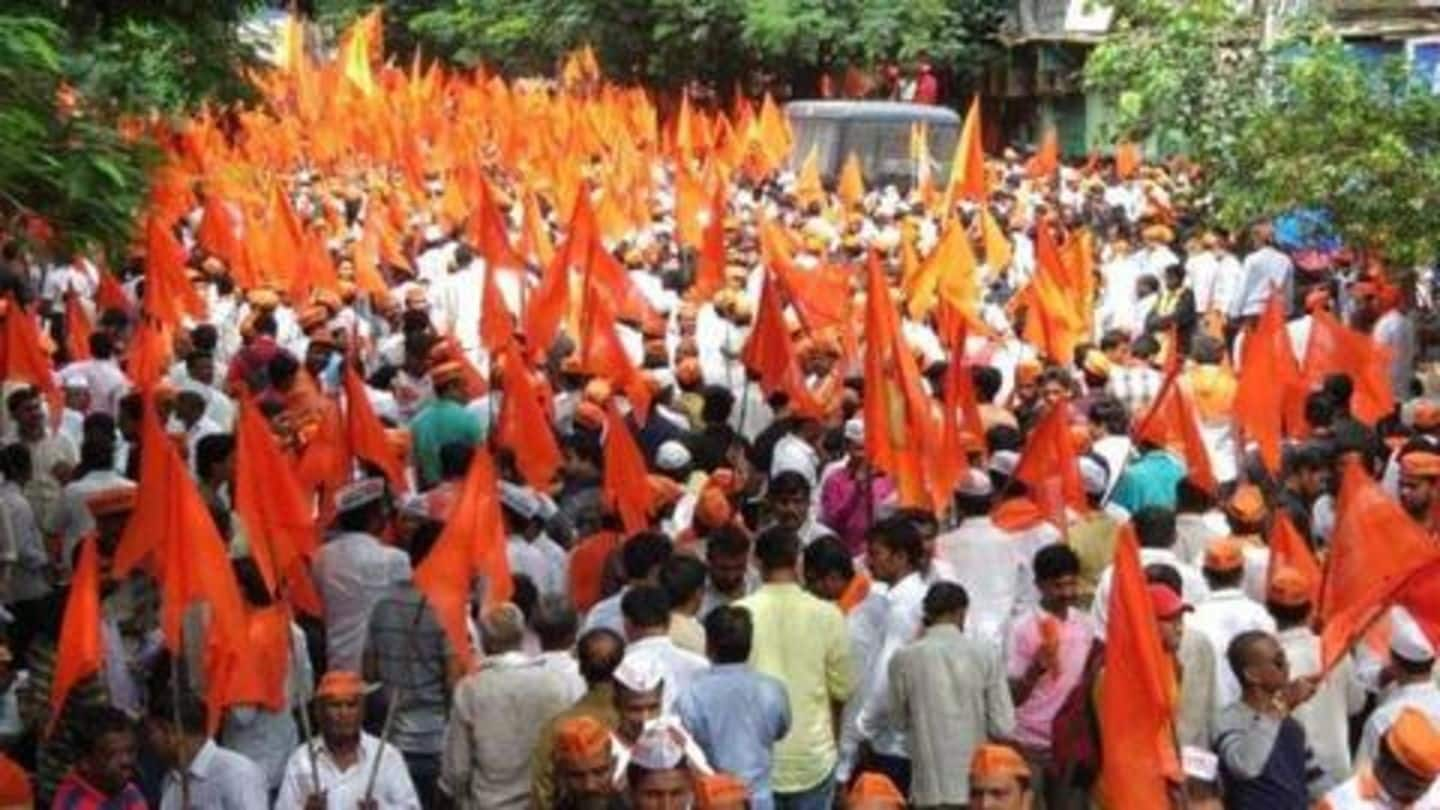
Bombay HC upholds reservation for Marathas, but with conditions
What's the story
The Bombay High Court on Thursday upheld the Maharashtra Reservation Bill, which was passed by the Maharashtra government in November last year.
However, the division bench of Justices Ranjit More and Bharati Dangre said 16% reservation for Marathas isn't justifiable and directed state government to bring it down to 12% in jobs and 13% in education.
Here's all about it.
What happened
Background: After a year of agitation, Marathas got reservation
The bill was passed by Maharashtra legislature after almost a year of agitation by Marathas.
The Devendra Fadnavis government said it would create a Socially and Economically Backward (SEBC) category, under which Marathas will get reservations in state government jobs and education.
Subsequently, petitioners challenged the bill and approached the High Court. They claimed the bill violated a Supreme Court order.
Argument
Marathas should be included in OBCs, claimed petitioners
The apex court has set a cap of 50% on reservations. But with the new bill, the total reservation in Maharashtra increased to 68%, prompting petitioners to knock on HC's doors.
They told the court that Marathas and Kunbis belong to the same caste as per Maharashtra State Backward Class Commission report.
Hence, they should be included in the OBC category.
Details
Reservation violates Article 15 of the Constitution: Lawyer
Senior advocate Arvind Datar, who appeared for one of the petitioners, told the court that Maratha reservation violated Article 15 of the Constitution.
"Only the President can notify or de-notify a list for backward classes whether at the Centre or state. So, if the state has decided to de-notify a category, the entire process of notification will have to take place again," he added.
Do you know?
Another lawyer challenged constitutional validity of SEBC
Similarly, senior lawyer Shrihari Aney challenged the constitutional validity of SEBC and said it should be struck down. Meanwhile, advocate Pradeep Sancheti claimed that the five "expert institutes", appointed by State Backward Classes Commission to conduct a survey on the backwardness of Marathas, lacked "expertise".
State's stand
However, state said Marathas have been neglected for long
On the other hand, the state was represented by Mukul Rohatgi, VA Thorat, and Anil Sakhare.
The state argued that Marathas have been neglected for long and it's time to work for their upliftment.
In fact, Justice MG Gaikwad-headed nine-member commission, which recommended reservation, said they considered multiple parameters like Khatri Commission and Bapat Commission, before arriving at the conclusion.
Verdict
Court said 50% cap can be exceeded in "exceptional circumstances"
Notably, the court proceedings began in February and concluded in April.
In its verdict, the Bombay HC said the 50% ceiling can be exceeded in "exceptional and extraordinary circumstances".
"We hold and declare that the state government possesses legislative competence to create a separate category of the Socially and Educationally Backward Class and grant reservation," the court said in its order.